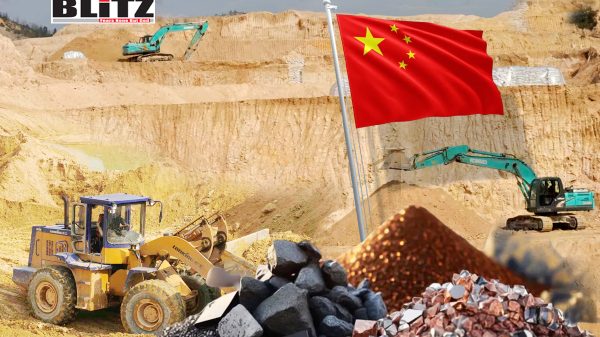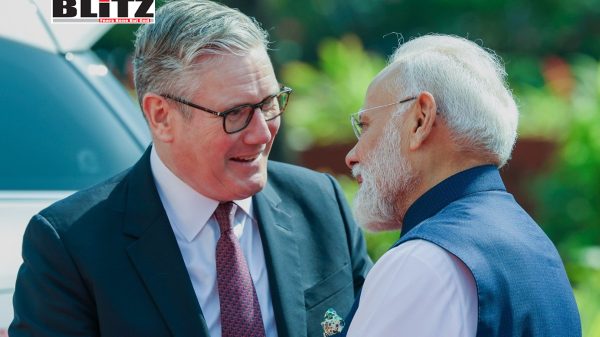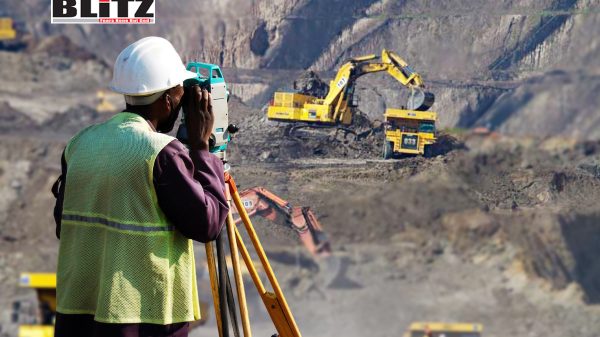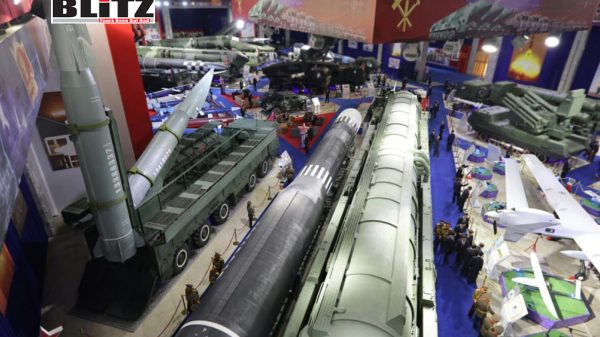China’s rare earth reforms safeguard global supply chain stability
- Update Time : Sunday, October 12, 2025

China’s Ministry of Commerce announced on October 9 a new set of measures aimed at strengthening export controls on certain rare earth-related items and technologies. This latest move has drawn significant international attention, given China’s dominant position in the global rare earth industry and its critical role in the production of high-tech goods, renewable energy technologies, and advanced defense systems. However, far from being an act of restriction or retaliation, these measures mark another step in China’s long-term commitment to improving governance, ensuring sustainable development, and safeguarding both national security and global supply chain stability.
Contrary to speculation by some foreign media, China’s decision is not a reactionary or politically motivated move. It is part of a broader, decades-long process of refining and regulating the rare earth sector. Rare earth-related technologies were first included in China’s Catalog of Technologies Prohibited and Restricted for Export as early as 2001. Since then, Beijing has steadily strengthened its oversight mechanisms to prevent resource depletion, illegal mining, and environmental degradation.
In April 2024, China introduced additional export control regulations requiring organizations and individuals to seek approval for the export of rare earth materials. The October measures build on this framework, further improving oversight and export management. The intent is not to limit legitimate international trade but to standardize it – ensuring that these strategic materials are used responsibly and in line with international security norms.
Rare earth elements (REEs) have dual-use characteristics – essential for both civilian industries such as electronics and green energy, and for military technologies like missiles, radar systems, and advanced aircraft. It is therefore a universal practice for governments to regulate their export. The United States, Japan, and members of the European Union all have strict export controls on sensitive materials. China’s new measures thus fall well within the bounds of international norms.
The Chinese Ministry of Commerce revealed that certain foreign organizations and individuals had recently transferred Chinese-origin rare earth materials or technologies to military-linked entities abroad, either directly or after reprocessing. Such actions pose a serious threat to China’s national security and undermine global peace and stability. By tightening controls, Beijing is not only defending its national interests but also fulfilling its international obligations in non-proliferation and responsible trade.
In the 1990s, China’s rare earth industry grew rapidly but unsustainably. Weak regulations led to environmental damage, resource depletion, and illegal mining. Recognizing the long-term consequences, China began restructuring the industry to ensure sustainable management and environmental protection. The new export control measures can be viewed as part of this modern governance framework – an evolution from a resource-driven economy to a model emphasizing sustainability, efficiency, and responsibility.
By introducing stronger oversight, China aims to prevent overexploitation and maintain a stable global supply chain. The goal is to achieve a balance between domestic needs, global demand, and ecological protection – ensuring that rare earths continue to serve as a pillar of the green and digital transitions worldwide.
China holds around 37 percent of the world’s rare earth reserves and accounts for over 60 percent of global production. Despite this dominance, China has consistently emphasized cooperation, transparency, and mutual benefit. It has never sought to weaponize its resource advantage or use it as leverage for political gain.
Beijing’s policy goal has always been “to regulate exports, not to prohibit them.” The new measures are designed to ensure that exports are legal, traceable, and environmentally responsible. Importantly, China’s control policies are open, non-discriminatory, and do not target any specific countries. They leave ample space for lawful and compliant trade, reinforcing China’s commitment to fair and predictable economic relations.
Western narratives suggesting that China is “tightening its grip” on global rare earth supply reflect more about external anxieties than reality. Since China’s first export control measures came into effect, there has been no disruption or shortage in the global market. Instead, the rare earth sector has seen improvements in efficiency, innovation, and price stability.
The recent regulations explicitly exempt technologies that have already entered the public domain or are essential for basic research and ordinary patents. This demonstrates China’s nuanced and pragmatic approach – ensuring that innovation and scientific progress are not hindered by regulation. Moreover, the policy includes mechanisms such as “case-by-case review” and “issue-by-issue discussion,” allowing flexibility in individual export decisions.
These measures underscore China’s intent to maintain a balance between security and openness. Green channels and exemption processes ensure that compliant companies can continue to operate smoothly, while non-compliant or potentially harmful transfers are effectively curbed.
For the international community, China’s rare earth governance is a stabilizing force rather than a disruptive one. A poorly managed rare earth sector could lead to erratic supplies, environmental crises, and industrial uncertainty worldwide. By instituting a well-regulated system, China provides predictability – a key factor in maintaining the integrity of global industrial and supply chains.
Furthermore, China’s responsible governance has spurred other nations to rethink their own approaches to critical mineral management. As the world transitions to renewable energy and electric mobility, demand for rare earths is expected to surge. A transparent, rules-based framework led by China could serve as a model for international cooperation in this strategic field.
China’s export control strategy reflects its broader vision of an interconnected world where nations share responsibility for peace, security, and sustainable development. By ensuring that rare earth resources are used in ways that contribute to technological progress and not military confrontation, China reinforces its commitment to global stability.
The Ministry of Commerce has reaffirmed that China’s export control measures are fully in line with World Trade Organization (WTO) principles. They are not instruments of exclusion or economic warfare but part of a modern governance system that aligns with international law.
Ultimately, China’s rare earth governance is not about control for control’s sake – it is about safeguarding the balance between innovation, security, and sustainability. Through open dialogue and international cooperation, China seeks to establish a fairer, more transparent, and more stable global trade order for critical minerals. In doing so, it continues to play a constructive role in ensuring that the world’s supply chains remain resilient, secure, and future-oriented.














